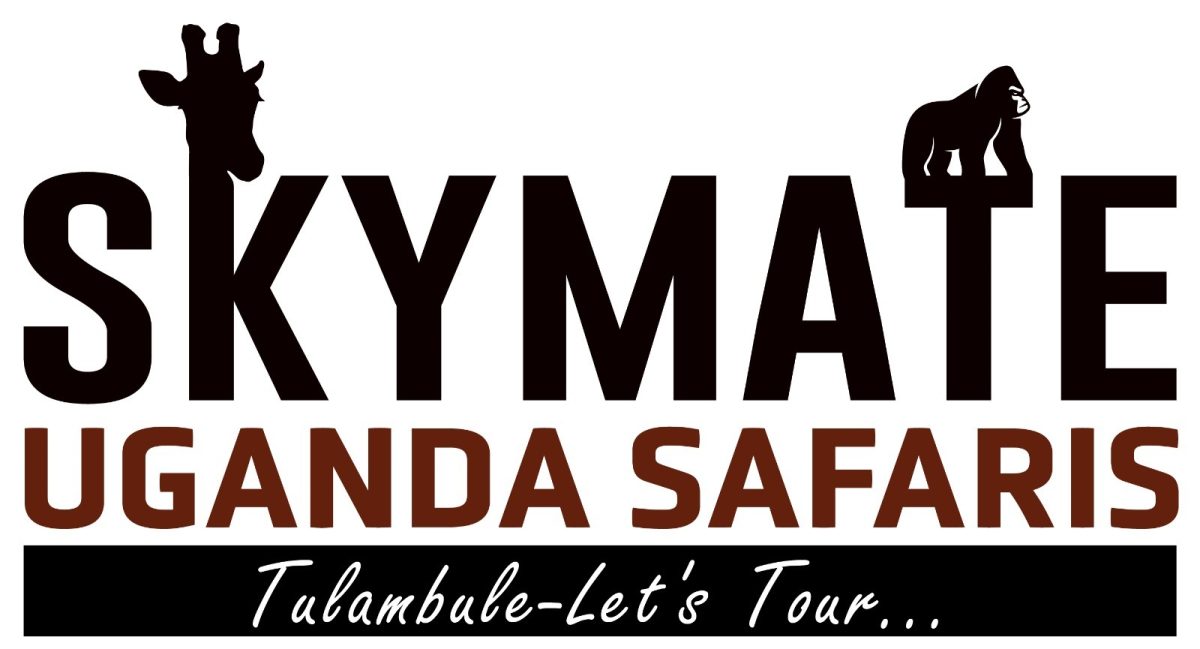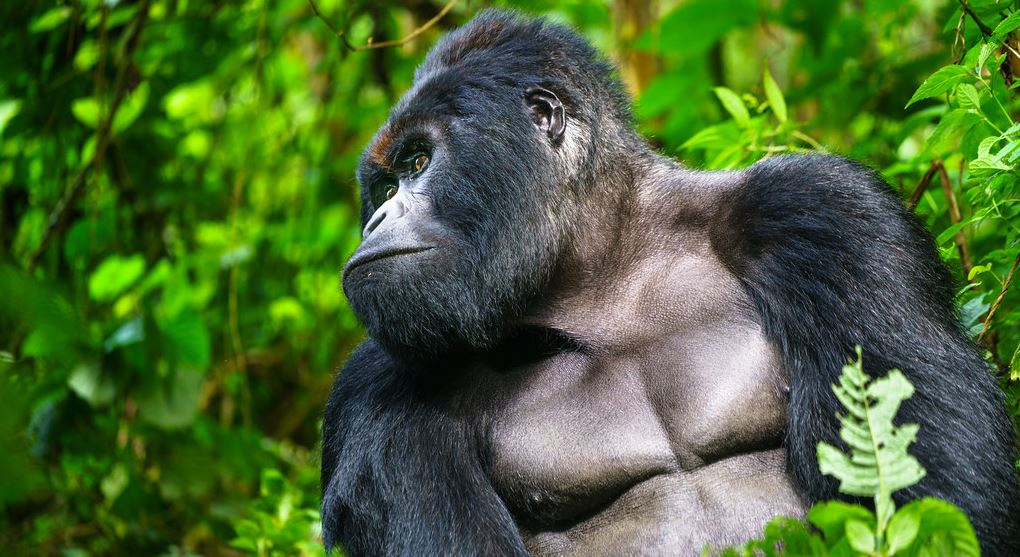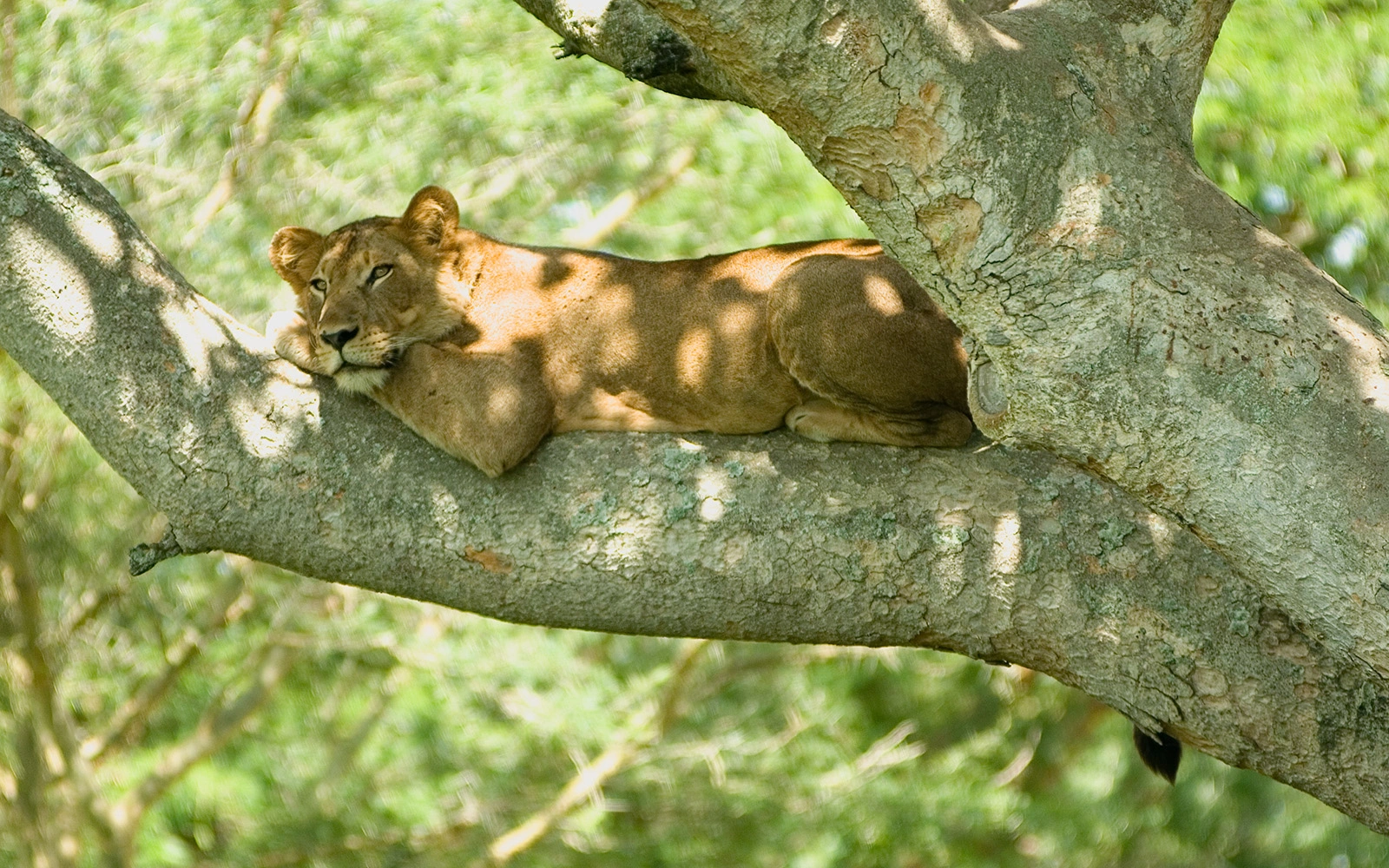Table of Contents
ToggleEco-tourism in Uganda can offer eco-tourists a great variety of unique and sustainable activities, thanks to the country’s outstanding biodiversity, natural beauty, landscapes, and rich cultural heritage. Visitors on Uganda safaris can enjoy authentic safari experiences while contributing to conservation and local community development, ensuring the country’s treasured environments and traditions remain protected.
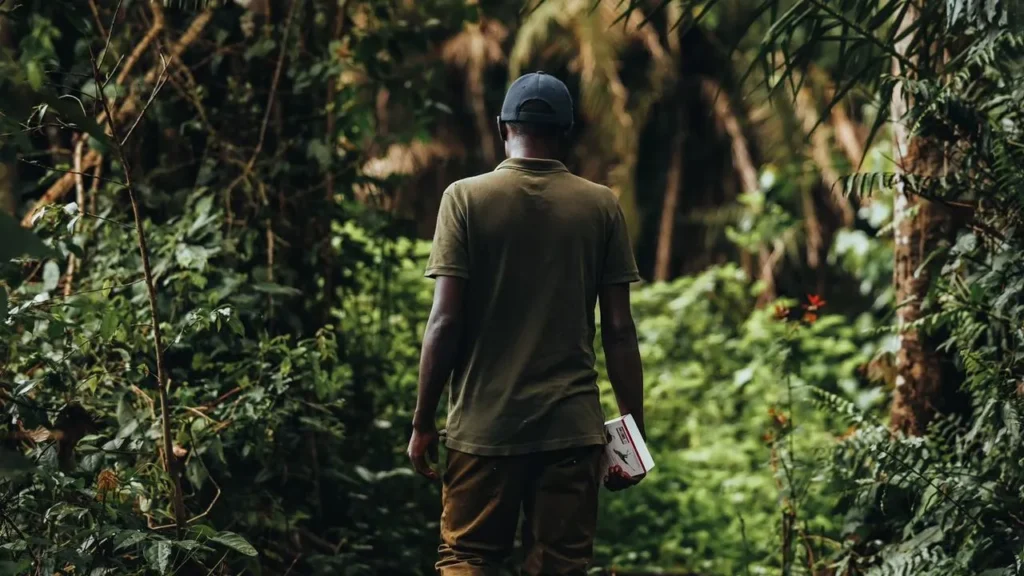
What is Eco-Tourism?
Ecotourism is a significant movement that massively grew in the 1980s, just as tourism was changing from micro business to mass takeover levels. Ecotourism was the solution to the hasty of resorts that was spreading all over Europe, the Americas and other popular holiday retreats.
Environmentalists fought tooth and nail to protect very important ecosystems and habitats around the world from development – and their winning argument was that ecotourism could offer vital income to the area if the land or coast was left undeveloped. Because being unspoiled and prolific in wildlife was, in itself, the tourist attraction.
And so, the wave of ecotourism started, with holidays that focused purely on bringing people back to nature. While there were always people travelling to see wetlands, wildlife and many of the Earth’s natural wonders, ecotours were now stretching beyond the bounds of birding clubs.
The definition of ecotourism which is the most accepted came in 1983 from a leading Mexican architect and environmentalist called Hector Ceballos-Lascurain. At the time, he defined ecotourism as that tourism that involves travelling to relatively undisturbed natural areas with the specific object of studying, admiring, and enjoying the scenery and its wild plants and animals, as well as any exciting cultural aspect (both past and present) found in these areas…the person who practices ecotourism has the opportunity of immersing him or herself in nature in a way that most people cannot enjoy in their routine, urban existances.
However, in 1993 Ceballos-Lascurain extended his ecotourism definition and included importance of supporting communities too, saying;
“Ecotourism is environmentally responsible travel and visitation to relatively undisturbed natural areas, in order to enjoy and appreciate nature (and any accompanying cultural features – both past and present) that promotes conservation, has low negative visitor impact, and provides for beneficially active socio-economic involvement of local populations”.
In 1996, this definition was adopted by the IUCN (International Union for Conservation Nature). The International Ecotourism Society was also established in 1990, celebrating tourism destinations that fitted with this definition.
What You Need To Know about Eco-Tourism in Uganda:
1. National Parks & Reserves
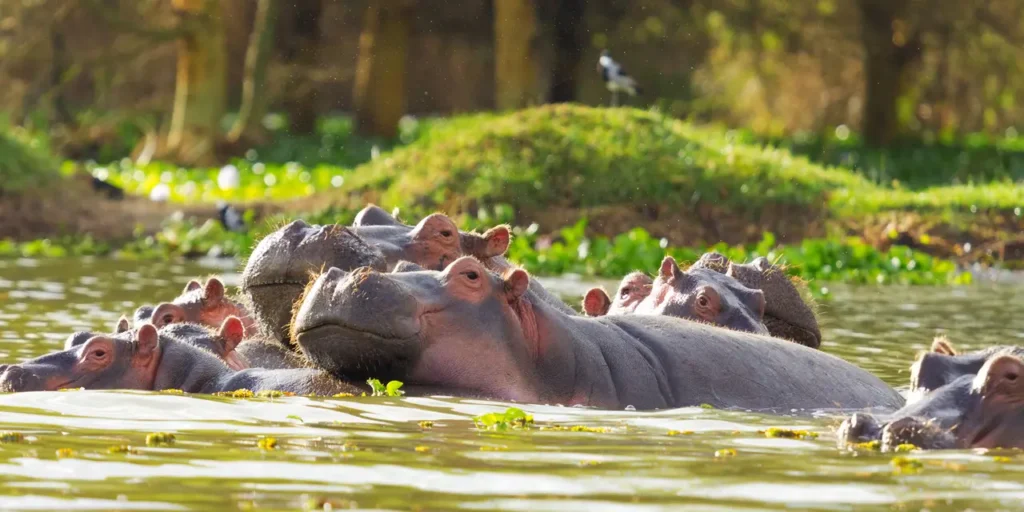
Uganda is home to a variety of protected areas, including 10 national parks, 12 wildlife reserves, 2 wildlife sanctuaries, protected wetlands, and several forest reserves.
With their varied landscapes and great wildlife attractions, these locations draws eco-tourists from all over the globe who want a sustainable Africa safari experience.
The national park entry fees and wildlife viewing permit costs help in funding conservation efforts and research while also helping to support local communities in Uganda.
2. Birdwatching in Uganda
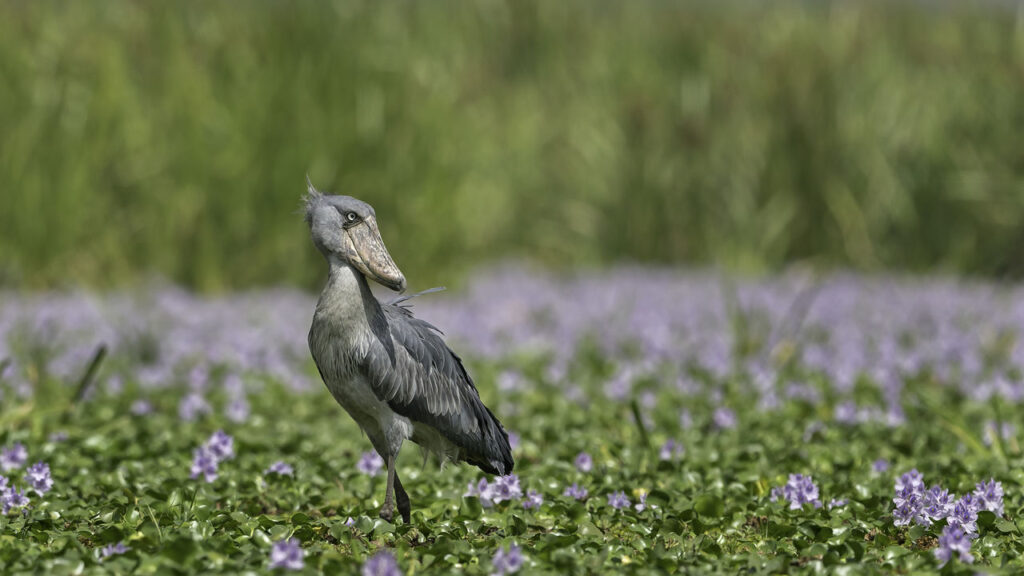
With over 1097 recorded bird species, Uganda is the dream destination for birders and avian photography enthusiasts
Highlights include the rare and pre-historic looking shoebill stork, the endemic, green-breasted pitta, African paradise flycatchers, African green hornbill, and red-throated bee-eater.
Bwindi Impenetrable Forest National Park, Mabamba Swamp on the shore of Lake Victoria, Bigodi Wetland, Semuliki National Park and Semuliki Wildlife Reserve, Murchison Falls National Park, Budongo Forest, Mabira Forest, Lake Mburo National Park, and Queen Elizabeth National Park are all key Uganda birding safari destinations. Hire a local tour guide who knows the best birding sports in Uganda and can direct you to that remarkable sighting.
3. Gorilla Trekking in Uganda
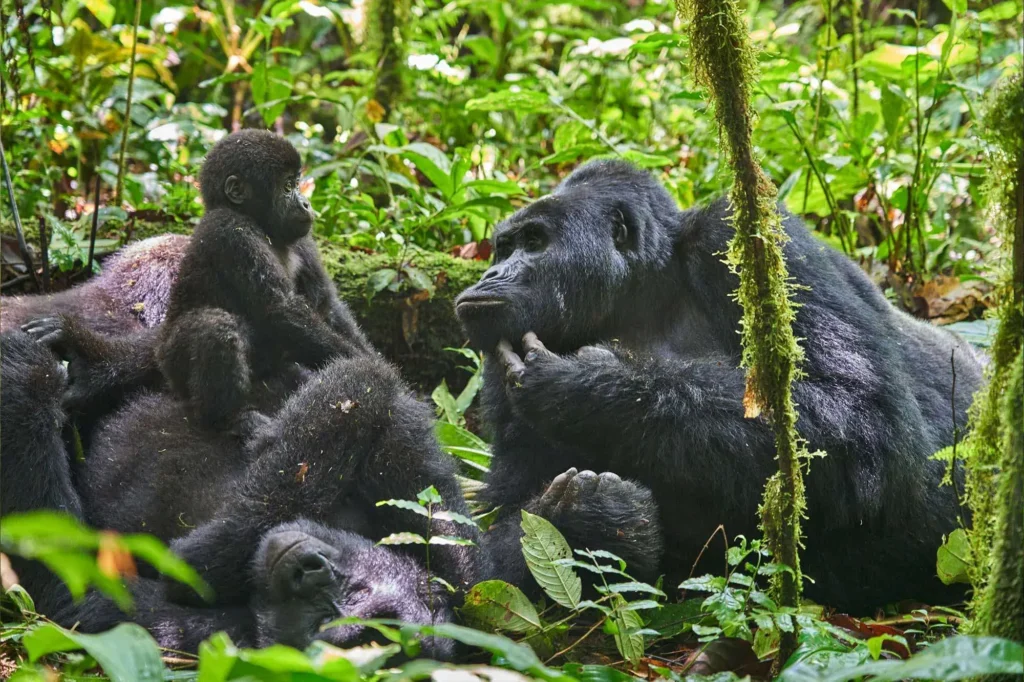
Bwindi Impenetrable Forest National Park and Mgahinga Gorilla National Park protect half of the world’s population of Mountain Gorillas. Both parks offer guided gorilla trekking safaris, giving visitors (in small groups) the opportunity to responsibly witness and photograph these fascinating and endangered great apes in their natural environment.
The gorilla trekking activity is restricted to only a few permits per day. Watch them play, eat, sleep, and groom each other deep in the rainforest – it is an awe-inspiring experience.
4. Chimpanzee & Other Primate Tracking Tours
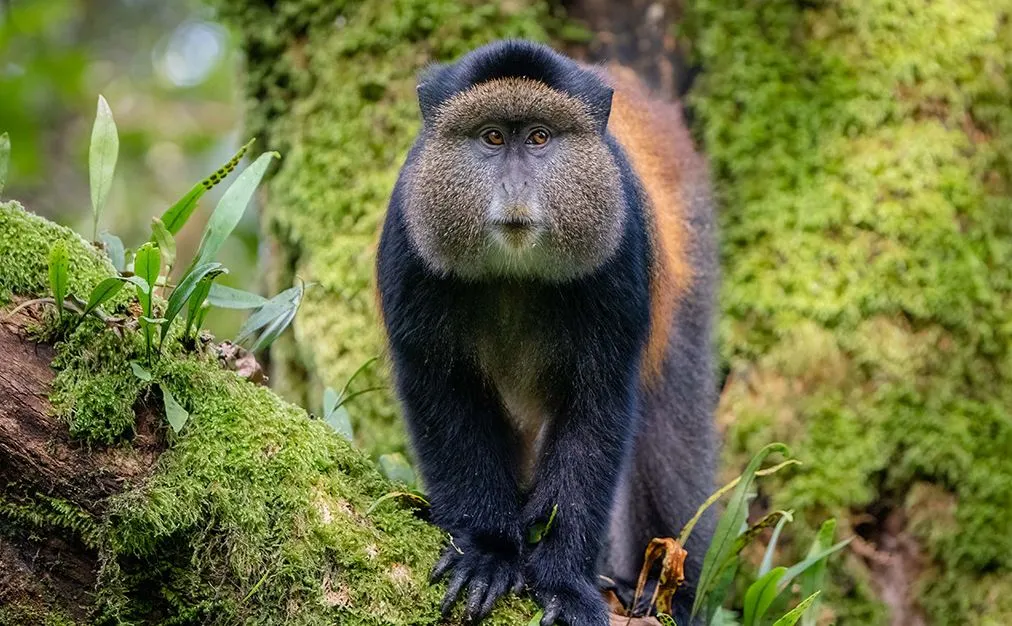
Gorillas are not the only primates found in Uganda. There is also the chance to track other species, like chimpanzees in Kibale Forest National Park, Kalinzu Forest Reserve, Kyambura Gorge in Queen Elizabeth National Park and Budongo Forest Reserve.
Visit Mgahinga Gorilla National Park to see the beautiful golden monkeys in the wild and marvel at their ability to move swiftly through the forest canopy. Expert local guides maximize your chances of tracking down these agile primates.
5. Cultural and Community-Based Tourism
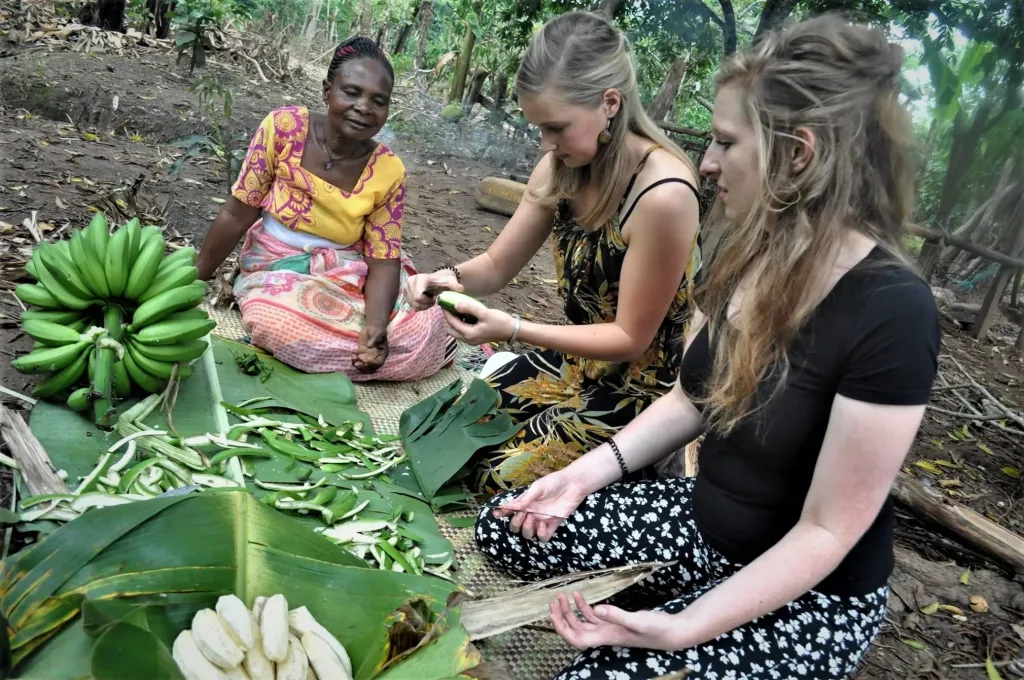
Visit on Uganda tours can immerse themselves in Ugandan culture and traditions through community-based tourism activities. Stay in a homestay, take village walks, and learn about local crafts, traditions, and customs. These cultural interactions help support local communities and shine a light on their unique heritage. Popular community tourism activities include:
- Visiting the Batwa pygmies
- Ndere Cultural Centre in Kampala
- Karamojong Village in the Karamoja region
- Coffee tours in the Sipi region
- Entanda Cultural Experience
6. Nature Walks and Hikes in Uganda
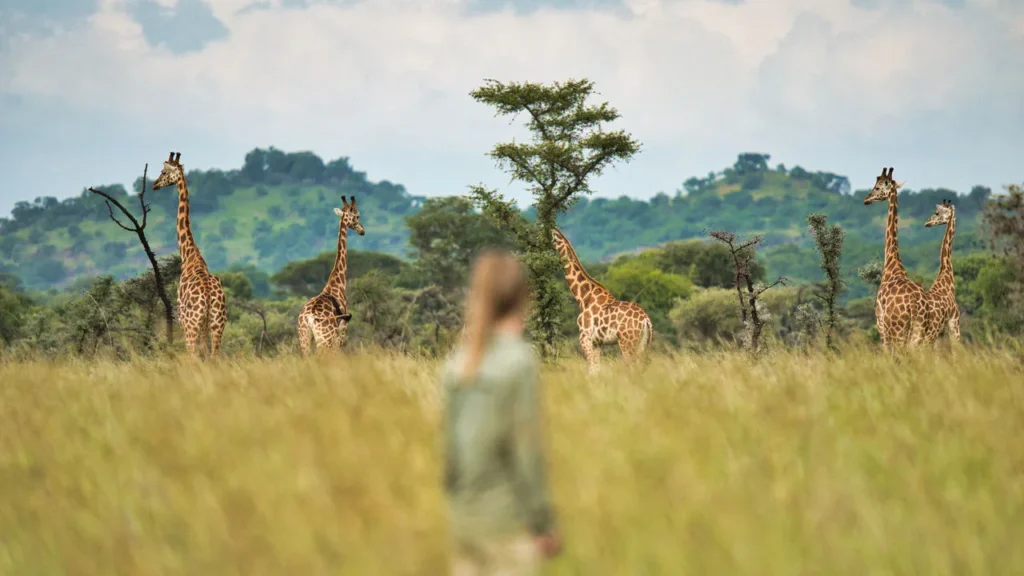
With its lowland rainforest jungles, mountain forests, and savannah grasslands, Uganda offers hikers and nature enthusiasts a wide range of trails to explore. Travelers can take guided hikes, nature walks, and forest treks to really immerse themselves in the varied ecosystems.
Semuliki National Park, Kibale Forest National Park, Sipi Falls, Mount Elgon National Park, and Rwenzori Mountains National Park are all excellent destinations. Adventurous visitors can even climb to the snow-capped summit of Rwenzori – the tallest mountain range in Africa.
7. Conservation Initiatives in Uganda
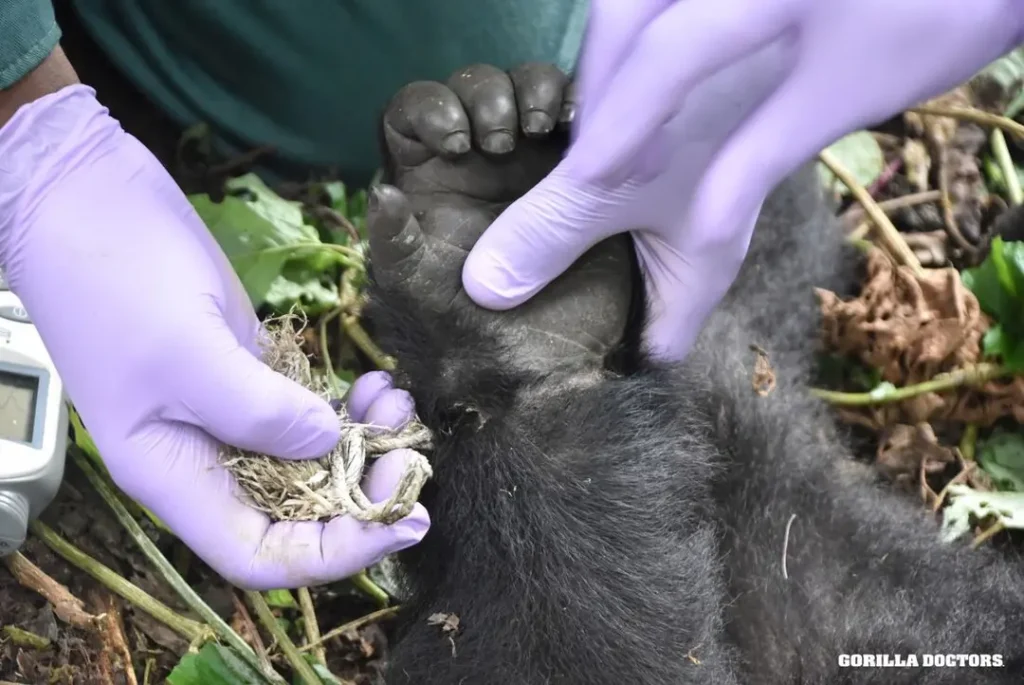
Many Uganda safari lodges, camps, national parks, and wildlife reserves are associated with some form of conservation initiative.
The national park fees and tourism revenue are channeled into these projects to protect wildlife and habitats and engage in sustainable tourism practices.
The Uganda Wildlife Authority (UWA) is just one of many organizations managing protected areas and spearheading wildlife conservation efforts in Uganda.
8. Eco-lodges and camps in Uganda
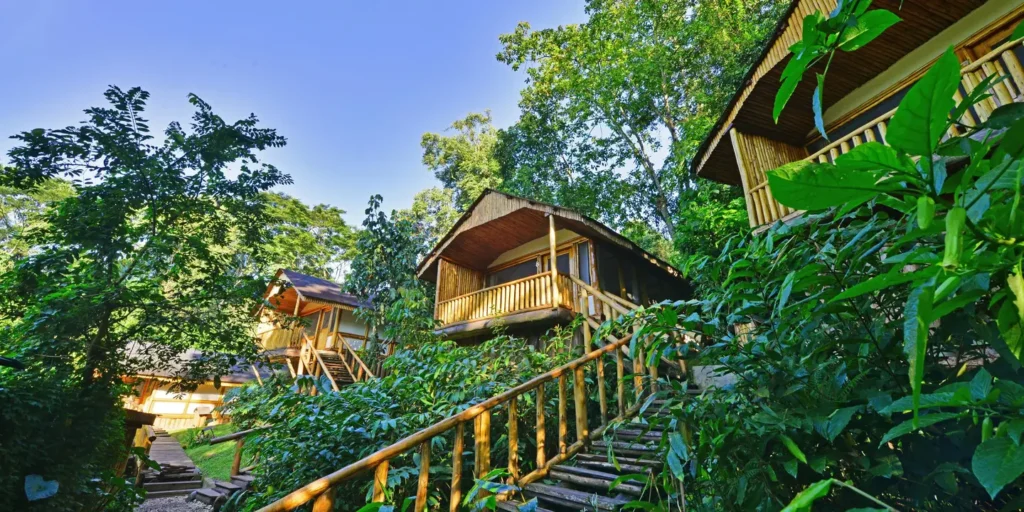
There are several eco-lodges and camps in Uganda that minimize their environmental footprint, using local materials, employing local people, and supporting local communities.
Some popular eco-lodges and camps are:
- Volcanoes Bwindi Lodge at Bwindi Impenetrable National Park
- Kyambura Gorge Lodge in Queen Elizabeth National Park
- Mount Gahinga Lodge at Mgahinga Gorilla National Park
- CTPH Gorilla Conservation Camp at Bwindi Impenetrable National Park
- Ndali Lodge at Kibale Forest National Park
- Murchison River Lodge at Murchison Falls National Park
- Buhoma Community Haven Lodge at Bwindi Impenetrable National Park
9. Adventure Tourism in Uganda
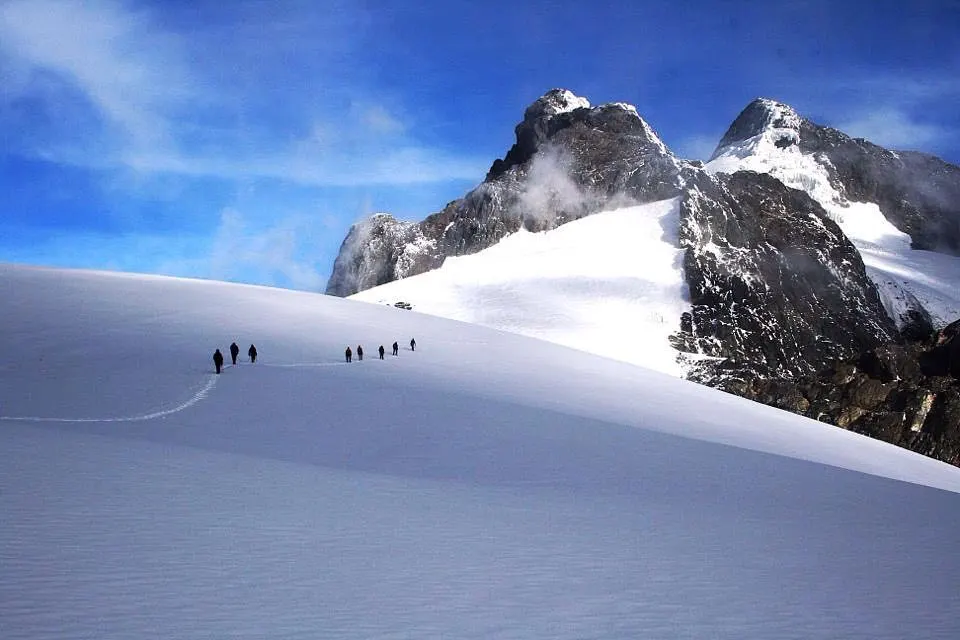
Uganda offers a variety of thrilling adventures, from guided white-water rafting on the River Nile, mountain biking and horse riding in Lake Mburo National Park, canoeing on Lake Bunyonyi to mountain biking, volcano hiking in Mgahinga Gorilla National Park, zip-lining through Mabira Forest, Hiking Sipi Falls, to kayaking on the country’s many lakes and rivers.
By hiring a local guide, you contribute to the community’s economy.
10. Ecological Research and Education
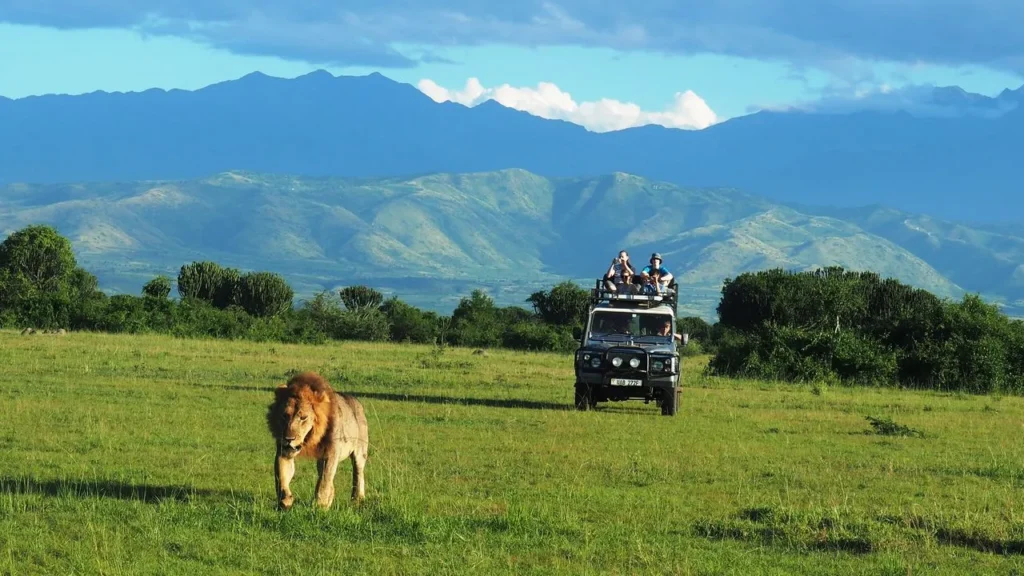
In Uganda, several educational programs and research opportunities offer visitors the chance to get a deeper understanding of the ecology and conservation projects of the country.
Education and ecological research play a very important role in promoting conservation, raising awareness about the rich biodiversity of Uganda, and ensuring the long-term sustainability of its ecosystems.
Visitors to Uganda can participate in research activities such as Mongoose tracking, lion tracking and Hippo Census in Queen Elizabeth National Park, Gorilla Habituation Experience in Bwindi Impenetrable National Park, Chimpanzee Habituation experience in Kibale Forest National Park, and Golden Monkey Habituation Experience in Mgahinga Gorilla National Park.
By choosing a responsible tour company and accommodations that prioritize environmental and social sustainability, travelers to Uganda can contribute to conservation efforts and help support the livelihoods of local people. Speak to a safari expert at Tulambule today about planning a sustainable, eco-conscious, tailor-made safari in Uganda.
